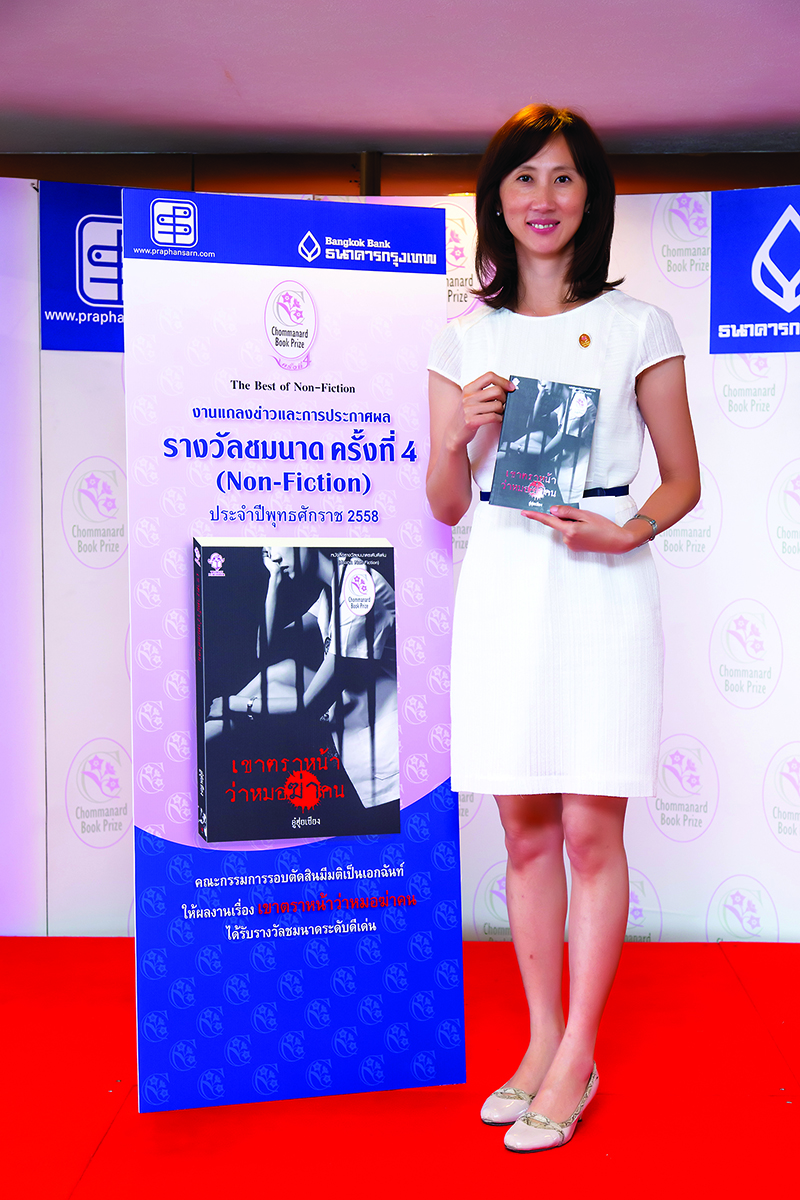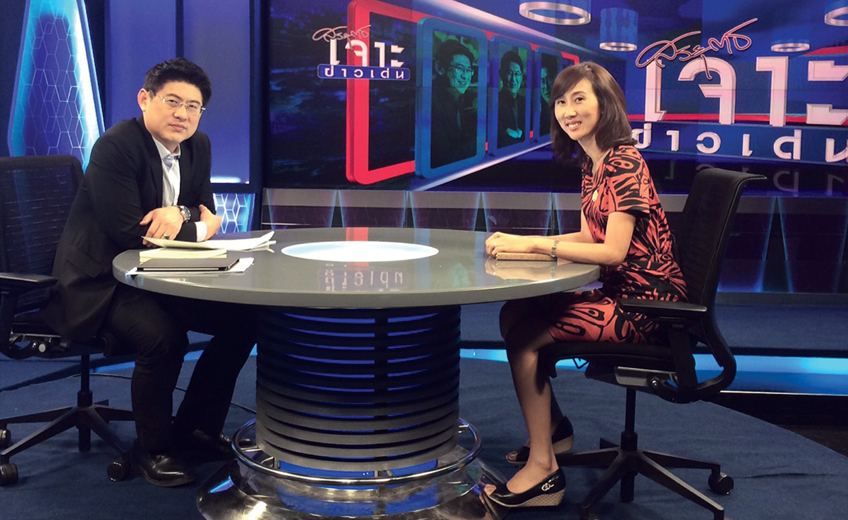In the past two decades, patients in Thailand have filed 499 malpractice cases against medical doctors and the Ministry of Public Health, according to information from Peace in Health, a body under Ministry of Public Health tasked to handle disputes between patients and doctors.

Most of the time, courts rule in favour of doctors. Of 68 lawsuits that reached the Supreme Court, doctors won 47.
Although the record suggests doctors have the upper hand in disputes, the sheer number of lawsuits illustrates the bitter relationship between doctors and patients. Malpractice lawsuits in Thailand were once rare, and the relationship was more cordial. Patients looked up to doctors while doctors took care of them.
“Now, most doctors work in fear that one day they will be sued by patients, and that fear prevents them from providing the treatment they want,” said Dr Sudanee Buranabenjasatean, author of award-winning book I was Branded a Murderer and director of Mae Lao Hospital in Chiang Rai Province.
Based on her experience of being sued by relatives of a patient, the book won the 2015 Chomnard Book Award in the non-fiction category.
Nicknamed “Siang” by friends and family or “Dr Siang” by her patients, she said the increasing number of lawsuits has changed the face of medical services in Thailand.
Fear of lawsuits has left students reluctant to go to medical school, while state doctors have resigned to work in other professions.
In former times, medical doctors would not hesitate to send patients to the operating room for simple operations such as appendicitis, she said. Yet a lawsuit against a doctor after a patient died during an operation has scared many doctors across the country.
“Now doctors are afraid that patients will sue if the operation goes wrong,” said Dr Sudanee. “So doctors choose to refer patients to large state hospitals instead. The patient ends up suffering more pain and being in greater risk of infection.”
Dr Siang’s is the perfect voice to speak of the bad relationship between doctors and patients or, as in her case, the relatives of patients. The book is based on her life from 2007 to 2010, when she was sued by relatives of a patient who died from amniotic fluid embolism (AFE) while giving birth.
At the end of the lawsuit, she moved to a new house following divorce. While packing, she found the diary in which she recorded her feelings during the trial. Re-reading it, she decided to turn the experience into a book.
“I wrote this book because I wanted to see a better relationship between patients and doctors. I did not want to see a divisive wall between them, because after all, patients and doctors must work together.”
According to Dr Siang, the lawsuits doctors face partially stem from limitations in the country's resources in public health care. “There are shortages in budget, medical personnel and treatment times that make it impossible for doctors to give the perfect treatment that patients expect. Doctors want patients to understand these limitations.”
The book does not only offer hard facts on problems in medical services; the story, now being translated into English, is also a channel for the author, who modestly calls herself an “insignificant country doctor”, to vent her frustrations about work conditions.
Workload and stress sometimes make doctors forget to understand the feelings of their patients.
“Doctors often forget human emotions because we are too busy. The heavy workload makes us forget that a doctor’s duty is not only healing the physical body but human souls.”
Dr Siang said she survived the battle because her friends and colleagues had great faith in her.
Senior doctors urged her to try to understand the feelings of the relatives of the deceased. After over three years of legal battles, the plaintiffs decided to withdraw the charges. Dr Siang and the relatives of the patient later became friends, together going to make merit for the deceased.
But the lawsuit ruined her marriage. After the divorce, she took her two children to live with her. Her case shows the other side of a doctor’s life. As Thailand is poised to become a medical hub, and private corporations have started to invest in the business, there are a lot of doctors who work under stress and limitations. These doctors do not work in swanky private hospitals; their workplaces are overcrowded public hospitals or community hospitals in rural areas.
The notion of a country doctor might sound idealistic and noble, but Dr Siang said the reality is more prosaic and painful.
“[They] have to shoulder a massive workload and fear of being sued. They need to do work shifts during weekends and, believe it or not, the salary of a doctor in a state hospital is just over 10,000 baht.”
These conditions and risks discourage medical students and practising doctors.
“Staying at private hospitals gives them much more money. Indeed, doing another profession will pay them more. So doctors have started to quit and the huge workload has shifted to the remaining doctors. But for me, the most affected group of the brain-drain phenomenon is the patients.”
Despite the hard work and the bitter experience of a lawsuit, Dr Siang decided to continue working at a community hospital, proud to be a country doctor.
“I cannot leave. If all doctors resign out of fear of lawsuits, who will take care of poor people?”
Born in Chiang Mai, she wanted to be petrochemical engineer in her youth. However, she studied medicine at Chiang Mai University to please her parents, and decided to become a state doctor, working at a small community hospital in rural Mae Chan district in Chiang Rai province.
Following the lawsuit, her career quickly got back on track. She has been promoted to director of Mae Lao Hospital in Chiang Rai. Despite working in an office drafting policy and managing people, in reality she needs to examine patients as usual. In a small community hospital, doctors are in short supply, so everyone helps out by working with the team, she said.
Looking back at the trial, she has learned many lessons that doctors or people in other professions can draw from.
“To work as a doctor or in any profession, you have to know how to last [in your job], how to be happy and remember to do your best in given circumstances.
“Always remember that real life is not similar to what is written in textbooks. You need to adjust.
“Knowing how to be happy requires that you look into yourself. When you understand yourself, you are able to understand others and the world around you,” she said

This is easier said than done. “So don’t overreach; take things step by step. When you fail, try again but with a different approach. And do not expect too much from life if you want to be happy. Be steadfast because it will lead to prosperity in your profession, social life and spirituality.”
As a doctor, she said she wishes patients were more realistic.
“I want every citizen to understand the limitations of public health services in Thailand. There are shortages in budget, personnel and treatment time that make it impossible for doctors to give the perfect treatment that patients expect.”
And as a doctor, she has a perfect health care tip for everyone: “Always take good care of yourself, because it is the best possible medical treatment.”





















































































































































































































































































































































































































































































































































































































































































































































































































